Directory
More than anything, the Kinder Institute is a vibrant, diverse community of scholars who share not only an academic interest in rigorously unpacking the complex history of constitutional democracy in the U.S. and around the globe but also a commitment to collective inquiry. Both in the classroom and beyond it, our undergraduates, graduate students, and faculty learn both alongside and from one another, and they do so with the kind of civility and interdisciplinary curiosity that is essential to generating innovative scholarship and engaging in productive discourse.
You can contact the Kinder Institute front desk with questions at, (573) 882-3330. For questions specifically regarding undergraduate programs, contact Dr. Thomas Kane, Director of Undergraduate Studies, at KaneTC@missouri.edu.
Use the tabs below to meet the people who make up the Kinder Institute.
Robert G. Bailey

Robert G. Bailey
Affiliated Faculty,
Assistant Dean Emeritus, MU School of Law, baileyr@missouri.edu
Bob Bailey is a 1968 graduate of Marist College and a 1979 graduate of the University of Missouri -Columbia School of Law, where he commenced his career after graduation. In 1983, Prof. Bailey became the City of Columbia’s Municipal Judge, serving for four years before returning to the MU Law School full time in 1987 as the Assistant Dean and Senior Fellow. Prof. Bailey is also Vice President of the National Academy of Arbitrators and has an active labor and sports arbitration practice. In addition, he is a Commissioner for the National Conference of Commissioners on Uniformed State Laws (NCCUSL), and he serves on the Uniform Athlete Agent Act and the Veterans Court Act drafting committees. Prof. Bailey is actively involved in campus committee work and chairs the mid-month Institutional Review Board (IRB), and he has a long history of community services. Presently, he chairs Boone County Family Resources, an agency providing services to 1,300 developmentally disabled citizens, and in the past, he has chaired the Family Health Center, the Central Missouri Food Bank, and the Regional Aids Inter-Faith Network (RAIN). He served as Director of the Law School’s nationally renowned Center for Dispute Resolution from 2005-2013, and he teaches Arbitration, a Lawyering Seminar, a first-year Lawyering class, and a Freshman Interest Group (FIG). Prof. Bailey is married to Sharon, and they have two daughters and four grandchildren.
Dennis Crouch

Dennis Crouch
Affiliated Faculty,
Judge C.A. Leedy Professor of Law, MU School of Law, crouchdd@missouri.edu
Professor Crouch is Associate Professor of Law at the University of Missouri School of Law. Prior to joining the MU Law Faculty, he was a patent attorney at McDonnell Boehnen Hulbert & Berghoff LLP in Chicago, Illinois, and taught at Boston University Law School. He has worked on cases involving various technologies including computer memory and hardware, circuit design, software, networking, mobile and internet telephony, automotive technologies, lens design, bearings, HVAC systems, and business methods. He is also the editor of the popular patent law weblog: Patently-O.
Professor Crouch received his BSE in mechanical engineering cum laude from Princeton University, where he also earned a certificate in engineering management systems. He then earned his JD cum laude from the University of Chicago Law School. While at the University of Chicago, he was a Microsoft, Merck, & Pfizer Scholar and a member of the Olin Program in Law and Economics.
Prior to attending law school, Professor Crouch worked as a technical consultant for manufacturing firms in New England, as a research fellow at NASA’s Glenn Research Center, as a software developer at the Mayo Clinic’s department of biomedical imaging, and as a Peace Corps Volunteer in Ghana, West Africa. Dennis Crouch grew up on a farm near Pittsburg, Kansas.
James Endersby
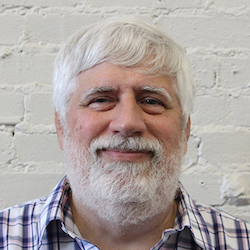
James Endersby
Affiliated Faculty,
Professor, Truman School of Government & Public Affairs, endersby@missouri.edu
James Endersby (Professor) has been with the Department of Political Science since 1991. He received his Ph.D. in 1990 from the University of Texas and specializes in American politics and government, political behavior (voting and elections), formal political theory, and research methods. Endersby served as the director of Canadian Studies at the University of Missouri and was past president of the Southwestern Political Science Association (2015-2016) and the Midwest Association for Canadian Studies (2007-2009).
Carl H. Esbeck

Carl H. Esbeck
Affiliated Faculty,
R.B. Price and Isabelle Wade & Paul C. Lyda Professor Emeritus, MU School of Law, esbeckc@missouri.edu
Carl H. Esbeck joined the faculty of the University of Missouri School of Law in 1981 and currently serves as the R.B. Price Professor Emeritus and Isabelle Wade & Paul C. Lyda Professor of Law Emeritus. He received his Juris Doctor magna cum laude in 1974 from Cornell University, where he was on the board of editors of the Cornell Law Review. Prof. Esbeck held a judicial clerkship with the Honorable Howard C. Bratton, chief judge of the U.S. District Court in New Mexico, and, from 1975-81, he practiced law in the Albuquerque firm of Rodey, Dickason, Sloan, Akin & Robb, where he was an equity partner when he left. Prof. Esbeck has published widely in the area of religious liberty and church-state relations, and he is recognized as the progenitor of “charitable choice,” an integral part of the 1996 Federal Welfare Reform Act, and later applied to all federal social-service grant programs via the faith-based initiative under Presidents Biden, Obama, and Bush. In addition, he has taken the lead in recognizing that the modern U.S. Supreme Court has applied the Establishment Clause not as a personal right, but as a structural limit on the government’s authority in explicitly religious matters. While on leave from 1999 to 2002, Prof. Esbeck directed the Center for Law & Religious Freedom (CLRF) at the Christian Legal Society and then served as Senior Counsel to the Deputy Attorney General at the U.S. Department of Justice. While directing the CLRF, he was a central part of the congressional advocacy behind the Religious Land Use and Institutionalized Persons Act of 2000 (RLUIPA). While at the Department of Justice, one of his duties was to direct a task force to remove barriers to the equal-treatment of faith-based organizations applying for social-service grants. Prof. Esbeck’s most recent book is Disestablishment and Religious Dissent: Disestablishment in the New American States, 1776-1833, published by University of Missouri Press in 2019 as part of the Kinder Institute’s Studies in Constitutional Democracy series. At MU, he taught courses on Civil Procedure, Religious Liberty and Church-State Relations, Federal Civil Rights Litigation, and Constitutional Law.
Bill Horner
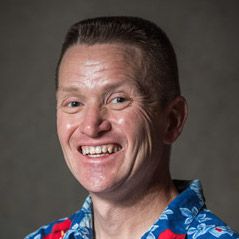
Bill Horner
Affiliated Faculty,
Bill Horner is Director of Undergraduate Studies and Teaching Professor in the Department of Political Science. He studied Radio, Television, and Film as an undergraduate at Northwestern University before completing graduate degrees in Political Science at Arizona State University (M.A.) and the University of Texas at Austin (Ph.D.). He is the author of Showdown in the Show-Me State (2005) and Ohio’s Kingmaker: Mark Hanna, Man and Myth (2010), and Saturday Night Live and the 1976 Presidential Election (2018), with MU Chair of Theatre Heather Carver. In addition, he is the co-author, with MU Professor of Political Science James Endersby, of Lloyd Gaines and the Fight to End Segregation, the first book published on the Kinder Institute’s Studies in Constitutional Democracy series with University of Missouri Press. Since arriving at the University of Missouri, Professor Horner has twice been awarded the Purple Chalk Award for Excellence in Undergraduate Education and has also received the prestigious William T. Kemper Fellowship for Teaching Excellence and the Chancellor’s Excellence Award for Lifetime Achievement in Advising for his work with Pi Sigma Alpha, the Political Science Department’s honors organization.
Ilyana Karthas
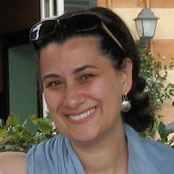
Ilyana Karthas
Affiliated Faculty,
Associate Professor, Department of History, karthasi@missouri.edu
Ilyana Karthas joined the MU history faculty after teaching for three years at McGill University in both the History Department and Women’s Studies Program. She teaches courses in Modern European intellectual and cultural history, specializing in 19th- and 20th- century France. Her research interests focus on the development of national identity, modern aesthetics, and ideologies of gender. Professor Karthas also teaches courses as part of the Gender Concentration, and she is an Affiliate Faculty member of both the Women’s and Gender Studies Department and the Kinder Institute. In 2010-2011, she served as the first Scholar’s Chair offered by the Department of Women’s and Gender Studies in which she awarded a research stipend, delivered a public lecture, and taught a seminar in the WGST Department. In 2013, she was awarded the Maxine Christopher Shutz Award for Distinguished Teaching & Lecture and, in 2020, she was awarded the Alumnae Anniversary Award for Excellence in Teaching. She has been invited to participate in public lectures at the National WWI Museum in Kansas City.
Brian Kisida

Brian Kisida
Affiliated Faculty,
Associate Professor, Truman School of Government & Public Affairs, kisidab@missouri.edu
Brian Kisida is an Assistant Professor in the Truman School of Public Affairs at the University of Missouri who focuses on education policy, experimental design, and causal inference. The dominant theme of his research focuses on identifying effective educational options and experiences for at-risk students that can close achievement gaps, experience gaps, and attainment gaps. His research has examined the broad educational benefits of school partnerships with cultural institutions and community arts organizations, teacher diversity, school integration, and urban school choice. His academic publications include articles in the Journal of Policy Analysis and Management, Sociology of Education, Educational Researcher, Educational Evaluation and Policy Analysis, Journal of Research on Educational Effectiveness, Economics of Education Review, and Policy Studies Journal. He has also co-authored three congressionally mandated experimental evaluation reports for the U.S. Department of Education’s Institute of Education Sciences. His work has been cited in congressional testimony before the U.S. House and Senate, and it has appeared in numerous media outlets, including The New York Times, USA Today, The Washington Post, The Wall Street Journal, and CNN.
Thom Lambert
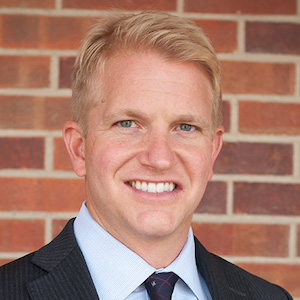
Thom Lambert
Affiliated Faculty,
Wall Chair in Corporate Law and Governance, Professor of Law, MU School of Law, lambertt@missouri.edu
Thomas A. Lambert is the Wall Chair in Corporate Law and Governance and Professor of Law. Prof. Lambert’s scholarship focuses on antitrust, corporate, and regulatory matters. He is the author of How to Regulate: A Guide for Policymakers (Cambridge Univ. Press, 2017) and co-author of Antitrust Law: Interpretation and Implementation (5th ed., Foundation Press, 2013). He has also authored or co-authored numerous book chapters and more than 20 journal articles in such publications as the Antitrust Bulletin, the Boston College Law Review, the Minnesota Law Review, the Texas Law Review, and the Yale Journal on Regulation. He blogs regularly at Truth on the Market, a site focused on academic commentary on antitrust, business, and economic legal issues.
In 2017, Professor Lambert received the University of Missouri’s Kemper Faculty Fellowship (awarded annually to five professors throughout the university for exemplary teaching). He has also received the law school’s Blackwell Sanders Award for Teaching Excellence and the university-wide Gold Chalk Award for excellence in graduate teaching. He is a three-time winner of the University of Missouri Law School’s Shook Hardy & Bacon Excellence in Research Award, which is awarded annually for most outstanding faculty scholarship.
Before entering academia, Professor Lambert practiced law in the Chicago office of Sidley Austin and was a John M. Olin Fellow at Northwestern University School of Law and the Center for the Study of American Business (now the Murray Weidenbaum Center) at Washington University. After graduating from law school, he clerked for Judge Jerry E. Smith of the U.S. Court of Appeals for the Fifth Circuit.
Adriana Méndez Rodenas
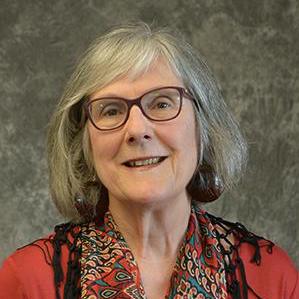
Adriana Méndez Rodenas
Affiliated Faculty,
Professor, School of Languages, Literatures, and Cultures, mendezah@missouri.edu
Adriana Méndez Rodenas is Professor of Caribbean and Latin American Literatures in the School of Languages, Literatures, and Cultures. Trained in Romance Studies at Cornell University (Ph.D) and Duke University (M.A.), she was professor of Spanish and Comparative Literature at the University of Iowa and came to the University of Missouri to direct the Afro-Romance Institute (2017-2021). Professor Méndez Rodenas’ areas of research are transatlantic studies, Caribbean literature, and travel writing. Her books explore the connection between gender and nineteenth-century Spanish American history. Gender and Nationalism in Colonial Cuba: The Travels of Santa Cruz y Montalvo, Condesa de Merlin (1998) retrieves a pivotal figure in Cuban letters, followed by critical editions of Merlin’s Les esclaves dans les colonies espagnoles (2005) and Viaje a la Habana (2009). Transatlantic Travels to Nineteenth Century Latin America: European Women Pilgrims (2014) traces the rise of Spanish American nationalism as documented in women’s travels. Currently she is engaged in Transatlantic Sketches: Fredrika Bremer’s American Journey (1851-1853) and the Iconography of the Plantation, a book on a pioneering Swedish novelist and early feminist whose travels to the U.S. and Cuba during the ante-bellum era show a comparative view of plantation society. Her research has been supported by the National Endowment for the Humanities, the Huntington Library, the Newberry Library, the Notre Dame Center for Advanced Studies, and the Cuban Research Institute at Florida International University.
She serves on the editorial board of Karib-Nordic Journal for Caribbean Studies and Instituto Internacional de Literatura Iberoamericana (IILI).
Email: mendezah@missouri.edu
Jeffrey Milyo

Jeffrey Milyo
Affiliated Faculty,
Professor and Chair, Department of Economics, milyoj@missouri.edu
Jeffrey Milyo is Professor of Economics at the University of Missouri and senior fellow at the Cato Institute in Washington, DC. He earned a Ph.D. in Economics from Stanford University and served on the faculty of Tufts University and the University of Chicago before coming to MU in 2004. Professor Milyo teaches courses in political economics, law and economics, health economics, and the economics of discrimination. Professor Milyo’s research interests include American politics and public policy evaluation, and his recent work investigates the efficacy of campaign finance reforms, the effects of voter ID laws, disparities in policing and sentencing, and the causes and consequences of political corruption.
Rigel Oliveri
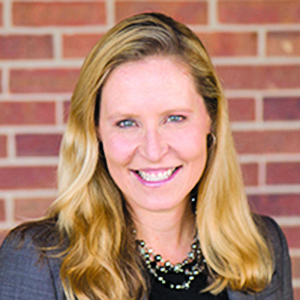
Rigel Oliveri
Affiliated Faculty,
Isabelle Wade and Paul C. Lyda Professor of Law, MU School of Law, oliverir@missouri.edu
Professor Rigel Olvieri is a nationally recognized expert on fair housing law. Her scholarship focuses on housing discrimination, zoning and property rights, and sexual harassment. Her published work has appeared in a number of prestigious journals and been cited by state and federal courts. She is the co-author of a casebook, Sexual Harassment Law: Cases, History, and Practice, and co-editor of The Legal Guide to Affordable Housing Development. She has received numerous awards for public service.
Professor Oliveri teaches Constitutional Law, Fair Housing, Employment Discrimination, and Civil Procedure at the MU Law School, where she joined the faculty in 2004 and served as Associate Dean fir Research and Faculty Development from 2009 until 2015. She currently serves as Commissioner for the Columbia Housing Authority and on the Board of Mid-Missouri Legal Services.
Prior to joining the MU Law faculty, Professor Oliveri served as a trial attorney with the U.S. Department of Justice in the Civil Rights Division, Housing and Civil Enforcement Section. She litigated and tried a number of significant cases involving housing discrimination and sexual harassment and housing. In 2003, she was awarded a Special Commendation from the Attorney General for outstanding service.
Professor Oliveri obtained her BA from the University of Virginia, where she was inducted into the Phi Beta Kappa society and graduate with Highest Distinction. She obtained her JD from Stanford Law School, where she was Articles Editor for the Stanford Law Review and was elected to the Order of the Coif. She clerked for the Honorable Stephanie K. Seymour, of the United States Court of Circuit Appeals for the Tenth Circuit, in Tulsa, OK.
Hannah Paul
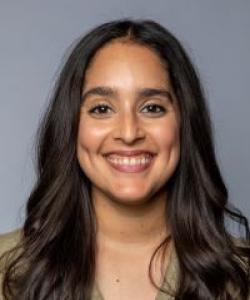
Hannah Paul
Affiliated Faculty,
Assistant Professor, Truman School of Government & Public Affairs, hannah.paul@missouri.edu
Dr. Hannah Paul joined the Truman School of Government and Public Affairs as an Assistant Professor in 2022. She studies comparative political behavior, the politics of immigration, and political representation. She has a special interest in time series and pooled times series analysis. Her current research interests focus on immigrant-origin political behavior, particularly refugees and asylum-seekers, as well as the effects of women’s representation. Her methodological research focuses on the implementation of models for pooled time series data in political science. Her work has been published in journals such as Political Science Research and Methods, Polity, Social Science Quarterly, and Legislative Studies Quarterly. She holds a Ph.D. in Political Science from University of Colorado Boulder.
Peverill Squire

Peverill Squire
Affiliated Faculty,
Professor and Hicks and Martha Griffiths Chair in American Political Institutions, Truman School of Government & Public Affairs, squirep@missouri.edu
Peverill Squire joined the Department of Political Science at the University of Missouri in 2007 and holds the Hicks and Martha Griffiths Chair in American Political Institutions. His Ph.D. is from the University of California, Berkeley (1986). Professor Squire previously taught at the University of Iowa and has been a visiting professor at Meiji University in Tokyo, Japan, and a Fulbright Distinguished Lecturer, holding the John Marshall Chair in Political Science at the Budapest (Hungary) University of Economic Sciences. He was senior editor of Legislative Studies Quarterly for many years, has served as chair of the American Political Science Association’s Legislative Studies Section and as co-chair of the International Political Science Association’s Research Committee of Legislative Specialists, and was given the 2018 Career Achievement Award by the American Political Science Association’s State Politics and Policy Section. Professor Squire specializes in American politics and legislative studies.
Claire Syler
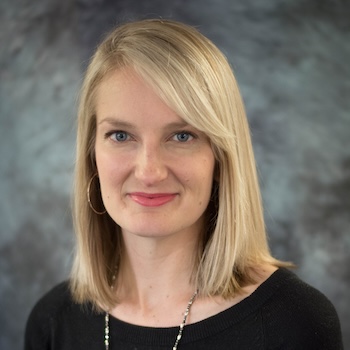
Claire Syler
Affiliated Faculty,
Associate Professor, Department of Theatre, sylerc@missouri.edu
Claire Syler is an Associate Professor in the Department of Theatre at the University of Missouri and the former Education Director of the Nashville Shakespeare Festival in Tennessee. Her research focuses on applied theatre, the cultural politics of casting, and performance pedagogy, and has appeared in Theatre Annual, Qualitative Inquiry, Applied Theatre Research, and Research in Drama Education among others. With Daniel Banks, she co-edited Casting a Movement: The Welcome Table Initiative (Routledge 2019).
FEATURED NEWS
June 18, 2025
May 19, 2025
March 21, 2025
February 17, 2025
